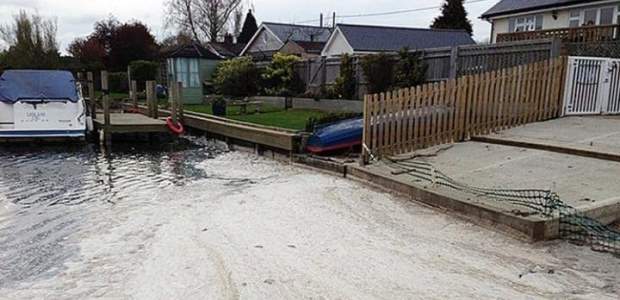
Record $24.5 Million Fine Issued to Thames Water for Sewage Discharges
The company's CEO, Steve Robertson, said it asked for the six 2012-2014 incidents to be considered and sentenced together "because it was clear that our performance in this part of our region, at that time, was not up to the very high standards that we and our customers expect."
Thames Water Utilities Ltd has been fined a record £19.75 million—$24.5 million in U.S. dollars, and the total is $25.2 million with court costs included—at sentencing March 22 in the largest freshwater pollution case ever investigated by the UK Environment Agency, which has been in existence for 20 years. The case involved six instances of sewage discharges on the River Thames from 2012 to 2014 that the agency claimed were caused by negligence, killing fish and waterfowl and causing public outrage.
The releases came from the company's wastewater treatment plants in Oxfordshire, Buckinghamshire, and Berkshire. "Investigations carried out by Environment Agency officers revealed a catalogue of failures by TWUL management. This involved repeated discharges of untreated or poorly treated raw sewage into rivers, disregarding risks identified by their own staff and failing to react adequately to thousands of high-priority alarms used to alert them to the serious problems," the agency reported March 22. "The Court heard how for weeks, untreated sewage, amounting to millions of liters per day, was diverted to the rivers and away from the treatment process, although the incoming sewage flow was well within the designed capacity of the treatment works. In many instances less than half of the incoming sewage was sent for treatment."
"Water and sewerage companies provide a vital service to the community. Where they experience problems through no fault of their own, we will always work with them to resolve them, but where negligence causes serious pollution or a serious threat to the environment, we will seek the strongest possible penalties," said Sir James Bevan, CEO of the Environment Agency. "This case sends a clear signal to the industry that safeguarding the environment is not an optional extra, it is an essential part of how all companies must now operate."
The judge in the case said the problems of Thames Water Utilities Limited were "entirely foreseeable and preventable."
The company already had been fined last year for similar problems in 2013 at two other sewage treatment facilities in Hertfordshire and Buckinghamshire in cases brought by the Environment Agency.
Thames Water CEO Steve Robertson, who was appointed in September 2016, said in a statement: "We deeply regret each of these incidents at six of our sites during the period 2012-14. We asked for these incidents to be considered and sentenced together, because it was clear that our performance in this part of our region, at that time, was not up to the very high standards that we and our customers expect. Since then, we've reviewed how we do things at all levels and made a number of key changes. These have included increasing the numbers of staff in key operational roles and investing heavily to improve reliability. As a result, our performance has significantly improved. We understand our huge responsibilities to the environment, have learned from these serious events, and continue to invest at the rate of around £20 million a week on continually improving our service to our customers and the environment."
He added, "We will be holding open days at each of these sites later this year so our customers and stakeholders can see the improvements we have made and speak to the operational teams who work hard to maintain high standards at the works. In addition, we will be adding £1.5 million to our Community Investment Fund, ring-fenced for projects to improve the river, its wildlife and surrounding environment at the affected locations."
The company serves 15 million customers, operates 350 sewage works across London and the Thames Valley, and is responsible for 68,000 miles of sewer pipes. It recycles 4.4 billion liters of sewage daily.